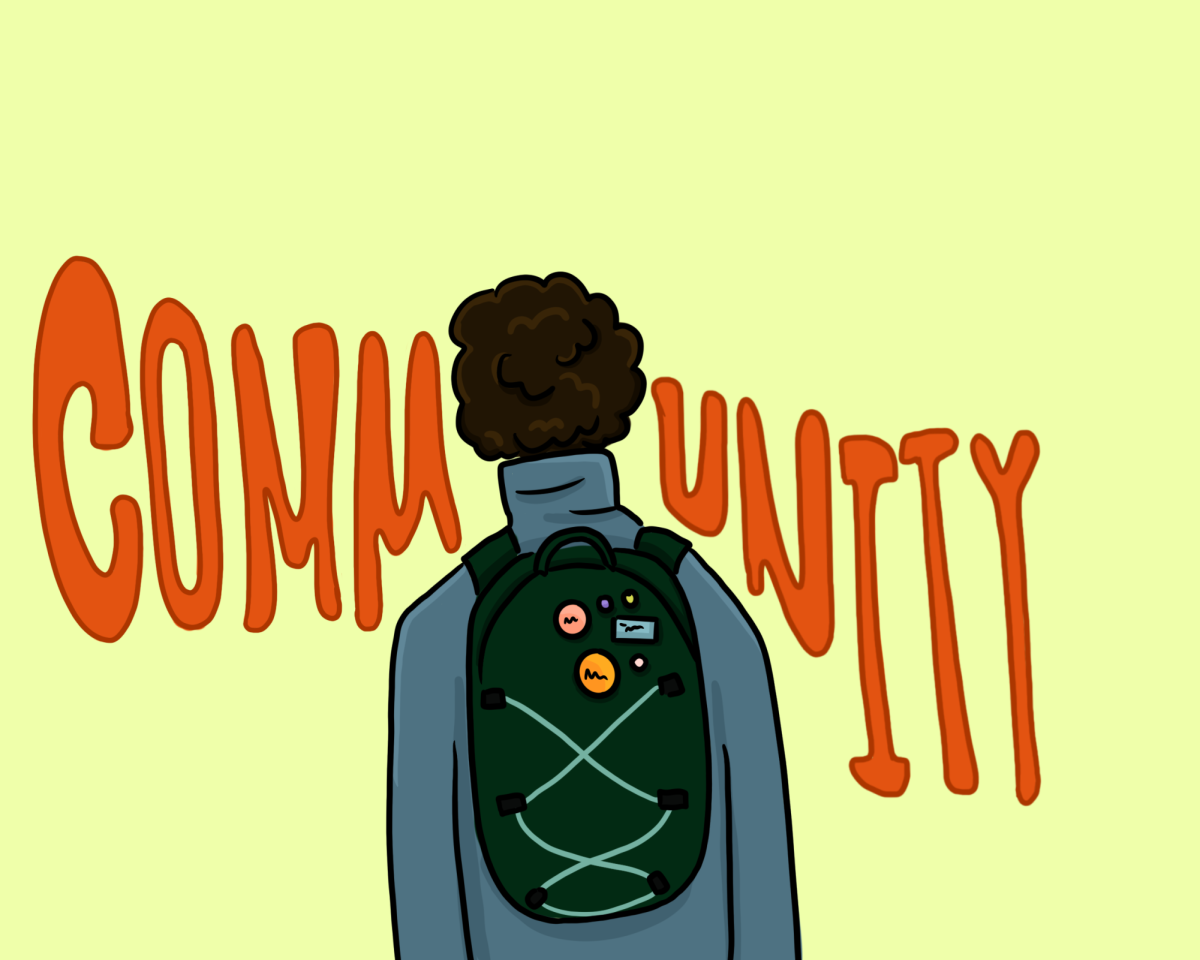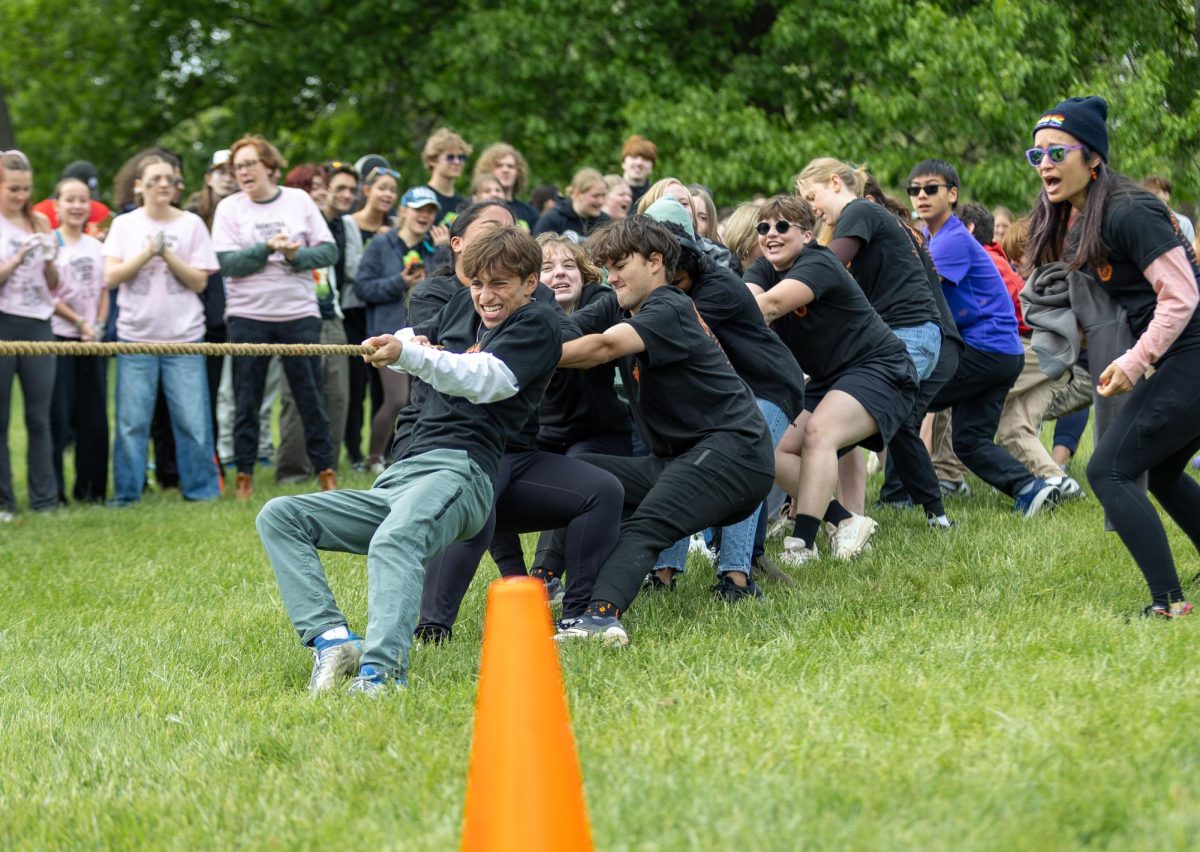“HOOOOORAHH!” The many voices of a battalion echo throughout the drill hall as families stand off to the side watching their loved ones.
This is a typical scene for the family of someone enlisted, watching as the drill sergeant takes attendance, hugging for the last time and stifling tears as they watch their loved ones board the bus to another town in order to head to a base where they will be trained and debriefed, and then, in less than a month’s time, sent overseas. With little or no communication with their loved ones, it can be a very difficult time for many families.
For Sergeant First Class Will Craven Junior, this is nothing new. He was deployed six times between 1999 and 2008 to five different places. Sgt. Craven travels across the world, not knowing when, or even if, he’ll return home. Two of his deployments were in Iraq, and he now knows what to expect, unlike Nathan Queen, a junior at Community High School, who will begin the deployment process in about six months when he turns 17.
Queen has decided that as soon as he is of age he will enlist full-time in the Marine Corps. Although he will be giving up his spare time and spring break this year, he is prepared for the commitment. Instead of finishing high school and college like most do before enlisting full-time he’s going to enlist before he starts his senior year in high school and plans to take college courses while overseas. Queen has decided to attend college when he returns home.
“Yeah, it’s kind of nice and not so nice because when people are going to be road tripping, going to Miami or wherever, I’m going to be stuck in camp training and it’s more of a character kind of thing, like a character building kind of thing,” Queen said.
The life that Marines lead appeals to Queen.
“I want to do it just so…I can be set aside from the group [and] stand out, but you do sacrifice a lot of free time,” he said. “I like the lifestyle, the discipline – it kind of sets the bar. If you can join the marines [then] what can’t you do? It’s a confidence builder. It’s one of those things that I don’t want to look back and regret I didn’t do it.”
Most armed forces members join because of family members who are veterans or because they attended a university ROTC. For Sgt. Craven this was not the case. After attending college, he joined the army at the brink of Desert Shield, an operation put into action during the Gulf War that deployed soldiers to help defend Saudi Arabia.
Even though Queen will not have the traditional college experience he’s not worried.
“I’m partly doing it to pay for college. After your active duty…[the government] pays for your college, [and] I’d like to go to U of M but it’s not really in my family budget,” Queen said.
Sgt. Craven always knew that he wanted to be a part of the armed forces.
“It was an easy decision for me,” Sgt. Craven said. “I saw myself on a path of destruction and joining the army seemed like the thing to do at the time.”
For Craven, there was never a doubt in his mind about enlisting; even as a child he knew this was what he wanted to do. The choice was not difficult for Queen either, but he didn’t always know he wanted to be a part of the military.
Queen and his brother are the first generation in their family to enlist in the military, but the decision Queen’s brother made to enlist did not influence Queen.
“There were other things that I wanted to do but this was always at the top of the list so I haven’t really had a doubt that I’m going to join,” Queen said.
Sgt. Craven’s family, with the exception of his mother, approved of his decision. His mother was furious when Sgt. Craven first joined; nonetheless, their relationship has held strong through the years.
Queen’s family had a similar reaction when his older brother made the announcement.
“They understood, [but] my mom didn’t want [him] to go,” Queen said. However, his parents
had a much more mellow reaction when Queen told them he intends to do the same.
“I already told them [and] it’s like 6 months until I join so I kinda gave them a heads up. My mom was like, ‘Only one at a time.’ But [then] I would have to wait until my brother was like 30 something. They can’t really say no once I’m 18 anyways,” he said.
For Sgt. Craven, being in the military is a full-time commitment. He is an active guard reservist (AGR) and his work load is never-ending. AGR soldiers are required to serve full time, and can be stationed anywhere on the globe that has a U.S. Military base. They get the same benefits as all the other full time soldiers including full pay and medical care for their immediate family and themselves. However, AGR soldiers can have many different tasks including, providing logistical support, providing explosive ordnance disposal (EOD) of unexploded ordinance, destroying all confiscated arms/ammunition/munitions and maintaining air support.
Sgt. Craven believes the living conditions for American soldiers have greatly improved. “Most [places] are easily livable,” said Sgt. Craven. In the past, soldiers stayed in wooden huts (hootches), often with nothing but strips of plastic as a door. They were one room dwellings with waist-high plywood separating the beds creating “privacy.”
Usually the beds were nothing but flimsy folding cots, similar to those at summer camps. The roofs were made of sheet metal pieced together across the length of the building. The hootches were surrounded by chest-high sand bags for “protection.” Luckily, some safety was provided. Between each hootch was a bunker for protection from incoming artillery. Now, soldiers live in containerized housing unit’s (CHU’s) with one or two people. A CHU is a building made out of solid concrete with no windows. They are usually about 14 feet by 7 feet and are meant for two people.
As for the food, Sgt. Craven feels, “[It has] never been something to complain about.” One thing remaining the same is the bathroom situation. Shower points and latrines were much closer to your hootch (100 yards away, at most) in the past. Now, there is usually one hygiene facility per group of CHU’s. Soldiers are required to leave their rifle outside while they do their business and must retrieve it afterwards. A small number of unlucky soldiers don’t get the pleasure of indoor plumbing. They dig a hole in the ground and use their “shower in a bag” which consists of a very large wet wipe, soap, shampoo, razor, deodorant, toothbrush etc.
In Iraq it can be over 100 degrees during the day and below freezing at night. Growing up and living in the Midwest, Sgt. Craven had difficulties adapting to the drastic temperature changes.
Sgt. Craven believes serving his country is rewarding. He admits that this line of work is challenging.
“In my opinion, any work that will cause you to travel away from family, friends, and the comforts of your home lifestyle can be lonely and extremely demanding,” he said. “However, any job that you do in life, [including] serving your country, is that which you make of it. If your time is spent focusing on those things that are not too inviting, like being away from home, the heat, the long hours, then yes, it will cause much heartache. However, if you spend your time trying to make the best of it, no matter what it is, then even a menial task such as mopping the floor can be rewarding.”
Luckily for Sgt. Craven, he has returned from each deployment safely without a single injury, mental or physical. Many soldiers come back severely injured, others never come back at all. Sgt. Craven has witnessed serious injuries, some fatal. While stationed in Bosnia, he saw a man die from an accidental shooting. Five years later, a man stationed with him in Afghanistan died during a mortar attack.
“My experiences have not introduced me to such brutal surrounding as some that have, or are, serving overseas,” Sgt. Craven added.
Although the job can be life-changing and difficult at times,“Transitioning is different for each solider,” Sgt. Craven said of returning home. “There are so many things that are available to soldiers now, as compared to those that have served before us in the days of the World Wars.” he said.
One thing that is available now is the psychological screening that each soldier goes through in order to ensure a safe transition. This screening will indicate whether support while transitioning will be needed.
Some aspects make it especially hard to transition back into civilian life.
“There is still some decompression that every soldier must endure in returning to civilian life, by the manner in which so many things are taken for granted and the amount of spoiled attitudes the general American population carriers, just to name a couple,” Craven said.
Queen does not know what to expect because transitioning can be difficult. He is unsure whether it will be a life changing experience or not. Sgt. Craven, however, had a very positive outlook as he looked back on his deployments: “They are all experiences, like all other [experiences] in life, [that] have brought me to where I am and who I am. I wouldn’t change a thing… all I can really offer is that each deployment provided me with a deeper appreciation of all [that] we have in this great country.”









